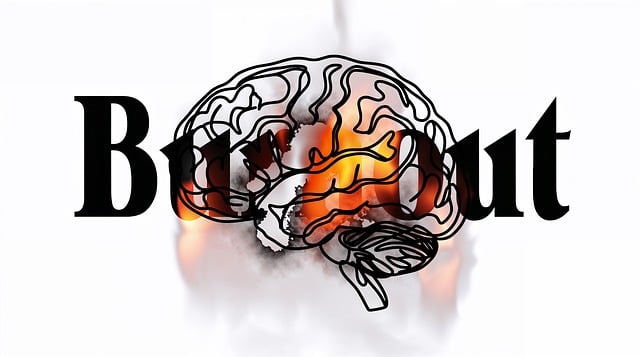RFM for Kids’ Mental Health: A Comprehensive Guide to Depression Therapy
Understanding RFM (Resilience, Flexibility, Mindfulness) is crucial in therapy for young children de…….
Depression among young children is a growing concern globally, with increasing recognition of its impact on their overall well-being and development. Therapy for Young Children Depression (TYCD) is an evolving field that focuses on identifying and addressing depressive symptoms in this vulnerable population. This article aims to provide an extensive guide to understanding TYCD, exploring its various aspects, global implications, and future directions. By delving into these topics, we hope to shed light on the importance of early intervention and evidence-based therapeutic approaches for children struggling with depression.
Definition:
Therapy for Young Children Depression refers to a range of psychological interventions and support services designed specifically for children aged 3 to 12 years who are experiencing symptoms of depression. It involves tailoring evidence-based therapeutic techniques to the unique needs, cognitive abilities, and developmental stages of young minds.
Core Components:
Historical Context:
The concept of TYCD has evolved over the past few decades with increasing research highlighting childhood depression as a significant public health concern. In the 1980s, early recognition of depressive disorders in children led to initial therapeutic approaches, primarily adapted from adult therapy models. However, it was not until the 21st century that specialized TYCD programs began gaining traction, driven by advancements in research and increased awareness among mental health professionals.
Significance:
Addressing depression in young children is crucial for several reasons:
TYCD is a global concern, with varying rates of childhood depression across different countries and regions. According to the World Health Organization (WHO), an estimated 4-5% of children worldwide experience depression, with some studies suggesting higher prevalence rates in certain populations.
Regional Disparities:
Trends Shaping TYCD:
The economic impact of TYCD is multifaceted, affecting both healthcare systems and society at large.
Market Dynamics:
Investment Patterns:
Economic Systems and TYCD:
Technology has revolutionized TYCD, offering new tools and platforms to enhance therapeutic outcomes.
Digital Therapy Platforms:
Artificial Intelligence (AI):
Telehealth Innovations:
The development and delivery of TYCD services are significantly influenced by policies and regulations worldwide.
Key Policies:
Regulatory Frameworks:
Despite its growing importance, TYCD faces several challenges and criticisms that require careful consideration and strategic solutions.
Main Challenges:
Proposed Solutions:
The following case studies illustrate successful applications of TYCD and the lessons learned from these implementations.
Case Study 1: School-based TYCD Program in Urban USA
A large public school district in an urban area implemented a comprehensive TYCD program, integrating mental health support into its existing services. The program involved regular training for teachers to identify depressive symptoms and refer students for specialized therapy. Online counseling sessions were offered during school hours, ensuring accessibility without after-school commitments. Results showed significant improvements in academic performance and reduced instances of behavioral referrals among participating students.
Key Takeaways:
Case Study 2: Community-based Mobile TYCD Service in Low-income Country
In a rural region of a low-income country, a non-profit organization launched a mobile TYCD service targeting underprivileged communities. The program utilized locally trained community health workers to conduct initial assessments and provide basic therapy sessions using digital tablets with pre-loaded therapeutic content. This approach ensured culturally sensitive care while reaching remote areas with limited access to mental health services.
Lessons Learned:
The field of TYCD is poised for significant growth and evolution in the coming years.
Emerging Trends:
Strategic Considerations:
Therapy for Young Children Depression is a dynamic field that has witnessed substantial growth and advancements over the past decade. As global awareness of childhood mental health continues to rise, TYCD services are becoming increasingly accessible and evidence-based. Addressing depression in young children not only improves their immediate well-being but also contributes to long-term societal benefits.
By tackling the challenges and seizing emerging opportunities, mental health professionals, policymakers, and communities can ensure that children worldwide receive the support they need to thrive. The future of TYCD holds promise for improving the lives of countless young people and shaping a healthier, more resilient society.
Q: How do I know if my child needs therapy for depression?
A: If your child exhibits persistent feelings of sadness, loss of interest in activities they once enjoyed, changes in appetite or sleep patterns, difficulty concentrating, or thoughts of self-harm, it’s important to consult a healthcare professional. They can conduct a thorough assessment and provide guidance on appropriate support, which may include TYCD.
Q: What are the signs that a child might be benefiting from therapy?
A: Children who are benefitting from TYCD may show improved mood, increased engagement in school or social activities, better sleep and appetite patterns, enhanced concentration, and reduced symptoms of anxiety or aggression. They may also express themselves more openly and demonstrate a growing sense of hope and optimism.
Q: Can TYCD be done along with other treatments for depression?
A: Yes, TYCD can often be combined with other evidence-based treatments like medication (if prescribed by a healthcare professional) or structured parenting programs. A multidisciplinary approach that integrates various therapeutic modalities is sometimes the most effective way to address complex cases of childhood depression.
Q: How do I choose the right therapist for my child?
A: Look for qualified professionals with experience in TYCD who use evidence-based approaches. Check their credentials, training, and certifications. It’s also essential to consider the therapist’s ability to build a positive rapport with your child and ensure a safe, supportive therapeutic environment. Discussing expectations and goals with potential therapists can help you make an informed decision.
Q: Are there any risks or side effects associated with TYCD?
A: Like any therapeutic intervention, TYCD has minimal risks when conducted by qualified professionals. Some children may experience temporary increased anxiety or emotional distress during therapy. However, these are typically managed effectively within the therapeutic process. It’s crucial to choose a therapist who can ensure your child’s safety and comfort throughout the treatment journey.

Understanding RFM (Resilience, Flexibility, Mindfulness) is crucial in therapy for young children de…….

Social Skills Training is a powerful therapy for young children with depression, addressing unique s…….